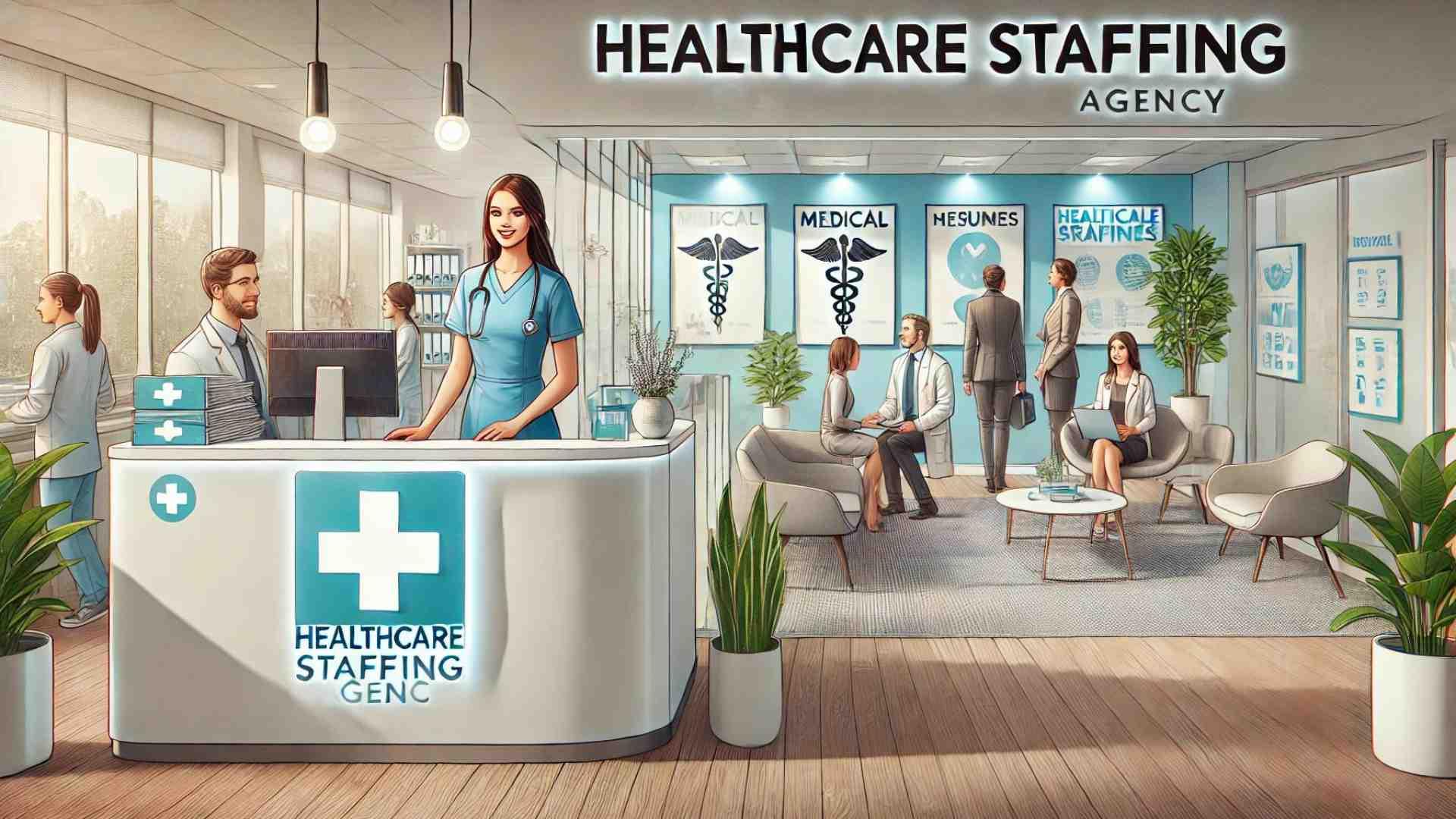How to Open a Healthcare Staffing Agency: A Step-by-Step Guide

The demand for healthcare staffing agencies is on the rise, driven by the growing need for flexible and specialized healthcare professionals. With the healthcare industry facing staffing shortages and increasing pressure to provide high-quality patient care, healthcare staffing agencies are well-positioned to fill the gap. If you're considering starting a healthcare staffing agency, this guide will walk you through the steps you need to take to get started.
Quick Overview
Before we dive into the details, here are the 3-4 most important points to keep in mind when starting a healthcare staffing agency:
Research and planning are crucial steps in starting a healthcare staffing agency.
Compliance with regulations and obtaining necessary licenses and certifications is essential.
Building relationships with healthcare facilities and professionals is vital for success.
A solid business plan and financial projections are necessary for securing funding.
Step 1: Research and Planning
Starting a healthcare staffing agency requires a thorough understanding of the market, industry trends, and regulatory requirements. In this chapter, we'll cover the importance of research and planning in laying the foundation for a successful agency.
Conducting Market Research
Market research is essential in understanding the demand for healthcare staffing services in your area. You'll want to analyze the competition, identify gaps in the market, and determine the types of healthcare professionals in highest demand. Some questions to consider:
What types of healthcare facilities are in your area (hospitals, clinics, nursing homes, etc.)?
What are the staffing needs of these facilities?
What are the current staffing challenges faced by healthcare facilities in your area?
What are the growth prospects for the healthcare industry in your area?
Identifying Your Target Market
Once you've conducted market research, it's time to identify your target market. Who will you be providing staffing services to? Will it be hospitals, clinics, nursing homes, or other types of healthcare facilities? What types of healthcare professionals will you be placing (nurses, doctors, allied health professionals, etc.)?
Developing a Unique Value Proposition
Your unique value proposition (UVP) is what sets your agency apart from the competition. What makes your agency unique? Do you specialize in placing hard-to-find healthcare professionals? Do you offer competitive rates or excellent customer service? Your UVP will be the foundation of your marketing strategy and will help you attract clients and candidates.
Creating a Business Plan
A solid business plan is essential for securing funding and guiding the growth of your agency. Your business plan should include:
Executive summary
Market analysis
Services offered
Marketing and sales strategy
Financial projections (including revenue, expenses, and profit projections)
Management and organizational structure
Step 2: Licenses and Certifications
Starting a healthcare staffing agency requires obtaining necessary licenses and certifications. These credentials ensure that your agency meets the standards and regulations set by state and federal authorities. In this chapter, we'll cover the different types of licenses and certifications required to operate a healthcare staffing agency.
Joint Commission Accreditation
The Joint Commission is a non-profit organization that accredits healthcare organizations, including staffing agencies. To become accredited, your agency must meet the Joint Commission's standards for quality and safety. Accreditation is not mandatory, but it's highly recommended, as it demonstrates your agency's commitment to quality and safety.
State Licenses
State licenses are required to operate a healthcare staffing agency in most states. These licenses ensure that your agency meets state-specific regulations and standards. Some states require licenses for specific types of healthcare professionals, such as nurses or doctors.
Certifications
Certifications are voluntary credentials that demonstrate your agency's expertise and commitment to quality. Some common certifications for healthcare staffing agencies include:
Certified Staffing Agency (CSA)
Healthcare Staffing Certification (HSC)
Joint Commission Certification
Compliance with Regulations
In addition to obtaining licenses and certifications, your agency must comply with various regulations, including:
HIPAA (Health Insurance Portability and Accountability Act)
OSHA (Occupational Safety and Health Act)
Affordable Care Act (ACA)
Step 3: Building Relationships
Building relationships with healthcare facilities and professionals is crucial for the success of your agency. In this chapter, we'll cover the importance of building relationships and provide tips on how to establish a strong network of contacts and partners.
Developing Relationships with Healthcare Facilities
Building relationships with healthcare facilities requires understanding their staffing needs and providing solutions that meet those needs. Some tips for developing relationships with healthcare facilities include:
Attend industry events and conferences
Offer competitive rates and excellent customer service
Provide flexible staffing solutions that meet the facility's needs
Developing Relationships with Healthcare Professionals
Building relationships with healthcare professionals requires understanding their career goals and providing opportunities that meet those goals. Some tips for developing relationships with healthcare professionals include:
Offer competitive pay and benefits
Provide opportunities for professional growth and development
Foster a positive and supportive work environment
Step 4: Operations and Management
Once you've built relationships with healthcare facilities and professionals, it's time to focus on the operational aspects of your agency. In this chapter, we'll cover the importance of developing a staffing model, recruitment strategy, and employee onboarding and training programs.
Staffing Model Options
There are several staffing model options to consider when starting a healthcare staffing agency. Some common models include:
Per-diem staffing
Travel nursing
Temporary staffing
Permanent placement
Recruitment Strategy
Your recruitment strategy should focus on attracting top talent and providing opportunities for professional growth and development. Some tips for developing a recruitment strategy include:
Utilize social media and online job boards
Offer competitive pay and benefits
Provide opportunities for professional growth and development
Employee Onboarding and Training Programs
Employee onboarding and training programs are essential for ensuring that your healthcare professionals are prepared to provide high-quality patient care. Some tips for developing employee onboarding and training programs include:
Provide comprehensive training on agency policies and procedures
Offer ongoing training and education opportunities
Foster a positive and supportive work environment